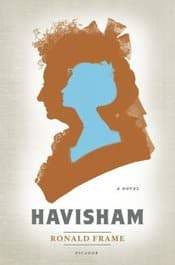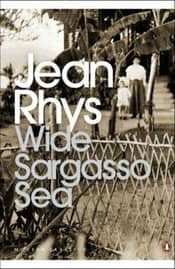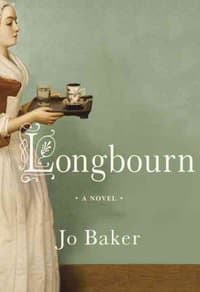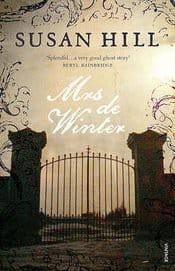The time is ripe for backstories and sequels. We can’t get enough of extending a beloved story as far as possible. No, not the latest Hobbit movie, or the long-heralded return of the Star Wars saga in 2015; I’m talking about the perennial draw of literary updates.
There are many fraught questions to consider when modernizing a classic: how true will this be to the original when it comes to chronology, voice, incident, and character? Will it be history, future story (sequel), or deeper, contemporaneous story? How much is invented, and are any additions warranted? Is the new interpretation relevant, contemporary, and believable?
In sum, is this new version necessary? In my view, it must either add something to the reader’s understanding of the original, or be worth encountering as a stand-alone story.
Dickens and Havisham
 For many people, no author more reliably induces Christmas cheer than Charles Dickens. In Havisham (first published in the US in November), Scottish novelist Ronald Frame imagines the early life of Miss Havisham, the jilted hag Pip encounters in Great Expectations.
For many people, no author more reliably induces Christmas cheer than Charles Dickens. In Havisham (first published in the US in November), Scottish novelist Ronald Frame imagines the early life of Miss Havisham, the jilted hag Pip encounters in Great Expectations.
Through striking first-person narration, readers learn of Catherine Havisham’s past—from family brewery to finishing school. She has a happy life with her father and her mischievous half-brother, but everything changes when she meets Charles Compeyson through amateur dramatics. Their whirlwind romance ends in betrayal, leading Catherine to become the bitter recluse of Dickens’s novel: “My suffering will be – thinking that I held back from life,” she wistfully concludes.
As a literary prequel, Havisham is very much in the vein of Wide Sargasso Sea by Jean Rhys (1966). Both novels are attempts to provide a voice and history to the apparent lunatic who haunts the edges of a literary classic. In Rhys’s case, Charlotte Brontë’s Jane Eyre is the point of reference and Bertha Mason (that proverbial madwoman in the attic) the character who merits a reimagining.
 Ultimately, though, Havisham falters where Sargasso succeeds. Frame’s is a solid Victorian pastiche and a convincing psychological portrait, but not a worthwhile novel in its own right. Only when the narrative intersects with the familiar story line of Great Expectations does the plot come into its own. Had Havisham been unconnected to Dickens – just your average work of Victorian-set historical fiction – I reckon I might have rated it more highly. But given my protective love of Dickens, Frame just didn’t match up.
Ultimately, though, Havisham falters where Sargasso succeeds. Frame’s is a solid Victorian pastiche and a convincing psychological portrait, but not a worthwhile novel in its own right. Only when the narrative intersects with the familiar story line of Great Expectations does the plot come into its own. Had Havisham been unconnected to Dickens – just your average work of Victorian-set historical fiction – I reckon I might have rated it more highly. But given my protective love of Dickens, Frame just didn’t match up.
Literary Sequels
More common than the literary prequel is the sequel to a well-loved classic, and no author’s work seems more often revisited than Jane Austen’s. Austen-inspired fiction is an entire industry unto itself; the temptation to follow characters’ further adventures (especially Mr. Darcy’s) seems too strong for many authors to resist. Even P.D. James, the grande dame of British crime fiction, succumbed with her 2011 mystery novel, Death Comes to Pemberley. James triumphs at the witty, omniscient narrator’s voice, but her plotting is dubious and requires inventing new and unnecessary characters.
 Longbourn, by British novelist Jo Baker, came out in October and is a rather different sort of Austen spin-off. It is (mostly) meticulously contemporaneous with the action of Pride and Prejudice – bar a couple of flashbacks and the last few chapters, which move beyond the world of the novel – which makes it a more satisfyingly canonical tale than James’s.
Longbourn, by British novelist Jo Baker, came out in October and is a rather different sort of Austen spin-off. It is (mostly) meticulously contemporaneous with the action of Pride and Prejudice – bar a couple of flashbacks and the last few chapters, which move beyond the world of the novel – which makes it a more satisfyingly canonical tale than James’s.
Baker’s take is distinct for her prioritizing of the servants’ perspective. Longbourn, the Bennet family home, would have been run by a small band of servants – to whom Baker gives faces and stories. That Downton Abbey or Upstairs, Downstairs element offers a fuller picture of early nineteenth-century English life (with multiple classes as well as races, and an unflinching view of bodily realities). Baker also presents more three-dimensional portraits of certain characters, particularly Mrs. Bennet, Mary, Wickham, and Mr. Collins. One senses that she felt rather sorry for them and wanted to give them their due.
In terms of literary merit, Baker’s “sequel” far outstrips most Austen-related fiction out there. Longbourn should appeal not just to Austen fans but to anyone who enjoys credible and compelling historical fiction.
When it really doesn’t work
 British suspense novelist Susan Hill (of The Woman in Black fame) earned almost universal opprobrium for her attempted sequel to Daphne du Maurier’s Rebecca, 1993’s Mrs. de Winter. Natasha Walter, reviewing it for the UK’s Independent newspaper, declared, “Susan Hill declines to trust her own imagination, and just fiddles impotently with Du Maurier’s grand inventions.” That’s when you know a literary revision just hasn’t worked; it adds nothing to the original experience, and only serves to annoy loyal fans.
British suspense novelist Susan Hill (of The Woman in Black fame) earned almost universal opprobrium for her attempted sequel to Daphne du Maurier’s Rebecca, 1993’s Mrs. de Winter. Natasha Walter, reviewing it for the UK’s Independent newspaper, declared, “Susan Hill declines to trust her own imagination, and just fiddles impotently with Du Maurier’s grand inventions.” That’s when you know a literary revision just hasn’t worked; it adds nothing to the original experience, and only serves to annoy loyal fans.
Literary retellings may be a minefield, but when they work well they bring a particular pleasure – that of returning to a favorite story and seeing new facets of its brilliance.





Great Expectations was one of my favorite books we read in high school so long ago. So it would be nice to read the prequel.
I appreciate these reviews. I am currently reading a continuation of Pride and Prejudice called The Darcy’s of Pemberley by Shannon Winslow and I am enjoying it very much. And I agree that “literary retellings” serve to bring back pleasant memories of favorite stories and aid in bringing new light to old characters and familiar places.
Fab article. It’s so timely as well since a new member of my book group decided to give us a theme for our choices this month which was prequels/sequels to literary classics. After trawling through, Wide Sargasso Sea was undoubtedly the winner. I must confess I didn’t realise what awful reviews ‘Mrs De Winter’ has had. I bought it in a bit of excitement ages ago and have never read it….I never did like Mrs De Winter anyway…so very, very irritating. How about ‘Rebecca’s Tale’ by Sally Beauman? My Dad quite enjoyed ‘Tom All Alone’s’ by Lynn Shepherd. Oo I could go on. But I’ll spare you that :-)